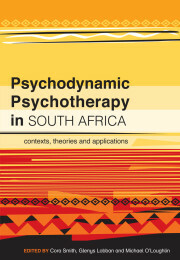The World Looks Like This From Here
Thoughts on African Psychology- Publication Date: September 2019
- Dimensions and Pages: 190 x 120mm; 152pp
- Paperback EAN: 978-1-77614-390-0
- eBook EAN: 9781776143924
- PDF EAN: 9781776143917
- Rights: World
- Recommended Price (ZAR): 250.00
- Recommended Price (USD): 30.00
This book builds a case for thinking and doing psychology differently in and for Africa. Its strength lies in the author’s arguments on psychology as a colonial discipline and what it does as it is transported to the African continent.
— Floretta Boonzaier, Associate Professor, Department of Psychology, University of Cape Town.
Ratele is the kind of scholar whose experience means he can jettison old ways of doing things in favour of experimentation and breaking boundaries. He insists on meddling with and poking at accepted ways of knowing and doing. Innovative in both form and content, the book is an important contribution to our scholarship.
— Hugo Canham, Associate Professor, Department of Psychology, University of the Witwatersrand, Johannesburg.
What does the world look like from Africa? What does it mean to think, feel, express without apology for being African? How does one teach society and children to be African – with full consciousness and pride? In institutions of learning, what would a textbook on African-centred psychology look like? How do researchers and practitioners engage in African social psychology, African-centred child development, African neuropsychology, or any area of psychology that situates African realities at the centre? Questions such as these are what Kopano Ratele grapples with in this lyrical, philosophical and poetic treatise on practising African psychology in a decolonised world view. Employing a style common in philosophy but rarely used in psychology, the book offers thoughts about the ideas, contestation, urgency and desire around a psychological praxis in Africa for Africans. While setting out a framework for researching, teaching and practicing African psychology, the book in part coaxes, in part commands and in part urges students of psychology, lecturers, researchers and therapists to reconsider and reach beyond their received notions of African psychology.
Author’s note
1 (African)
2 The necessary adjective
3 Disorientation
4 Awake to Africa
5 A way of seeing
6 Off-centre
7 Words are not enough
8 Teaching Africa
9 Psychology is culture
10 Africa internationalised
11 Aiming for redundancy
12 Overlooked perspectives
13 Unselfconscious situatedness
14 Own goal
15 African scholarship
16 Education as ethical responsibility
17 Black children and white dolls
18 Search for Africa i psychology
19 Dethingifying
20 Three problems
21 Fog and friction
22 African enough?
23 Antiapthy, apathy
24 Superhuman subhuman
25 Sources of negativity
26 Not all (blacks) think alike
27 Causes of confusion
28 Estrangement
29 The centre
30 Terminology
31 Defining by negotiation
32 Self-sabotage
33 A welcoming home
34 Defining by affirmation
35 Scholarly extraverts and introverts
36 It’s Africa, except when it’s not
37 Points on a continuum
38 Invisible Africa
39 Calls to decolonise
40 We need to talk
41 A heterogenous terrain
42 It’s power, stupid
43 Living with constant resistance
44 A psychological history of struggle
45 Healing potential
46 Porous hegemony
47 An offshore model
48 Only a situated understanding will do
49 Satisfied with alienation
50 A worldwide we need
51 Diverse and dynamic orientations
52 Returning to definitions
53 A psychology from nowhere
54 A proposal
55 (African) American psychology
56 Mischievous questions
57 Solutions to alienation
58 Conscientisation
59 A new course
60 Complicity
61 The lost self
62 An unacknowledged past
63 Ina and of the world
64 Origins of (African) psychology
65 Birth of a discipline
66 Paternity claims
67 Fatal intimacy
68 Lineage and authority
69 Being African
70 Interconnectivity
71 Four axioms
72 Above all
73 The past in the present
74 Making space for all
75 Caveat
76 A variegated approach
77 The ultimate goal
78 Real constraints
79 Debates and contests
80 A contingent term
81 Polyvocality
82 Four orientations
83 Notes on Western-oriented African psychology
84 The world as it is
85 Notes on psychological African studies
86 A note on cultural African psychology
87 Traditions and modernities
88 Further notes on cultural African psychology
89 A note on critical African psychology
90 Misperceiving the object
91 Permeable boundaries
92 European archives, African exchanges
93 Continued hopes and frustrations
94 (African) developmental psychology
95 (African) community psychology
96 Awake to yourself
97 Tenets of psychology
98 Psychological freedom
99 Think Africa in the world
100 Always the future
References
Index
Kopano Ratele is a professor in the Institute for Social and Health Sciences at the University of South Africa (Unisa) and a researcher in the South African Medical Research Council’s Violence, Injury and Peace Research Unit. He is a regular guest on radio and television, co-hosting a radio programme, Cape Talk Dads.
His books include Liberating Masculinities (2016), Engaging Youth in Activism, Research and Pedagogical Praxis: Transnational and Intersectional Perspectives on Gender, Sex, and Race (co-edited with Jeff Hearn, Tammy Shefer, and Floretta Boonzaier, 2018).
This book builds a case for thinking and doing psychology differently in and for Africa. Its strength lies in the author’s arguments on psychology as a colonial discipline and what it does as it is transported to the African continent.
— Floretta Boonzaier, Associate Professor, Department of Psychology, University of
Cape Town
Ratele is the kind of scholar whose experience means he can jettison old ways of doing things in favour of experimentation and breaking boundaries. He insists on meddling with
and poking at accepted ways of knowing and doing. Innovative in both form and content, the
book is an important contribution to our scholarship.
— Hugo Canham, Associate Professor, Department of Psychology, University of the
Witwatersrand, Johannesburg



